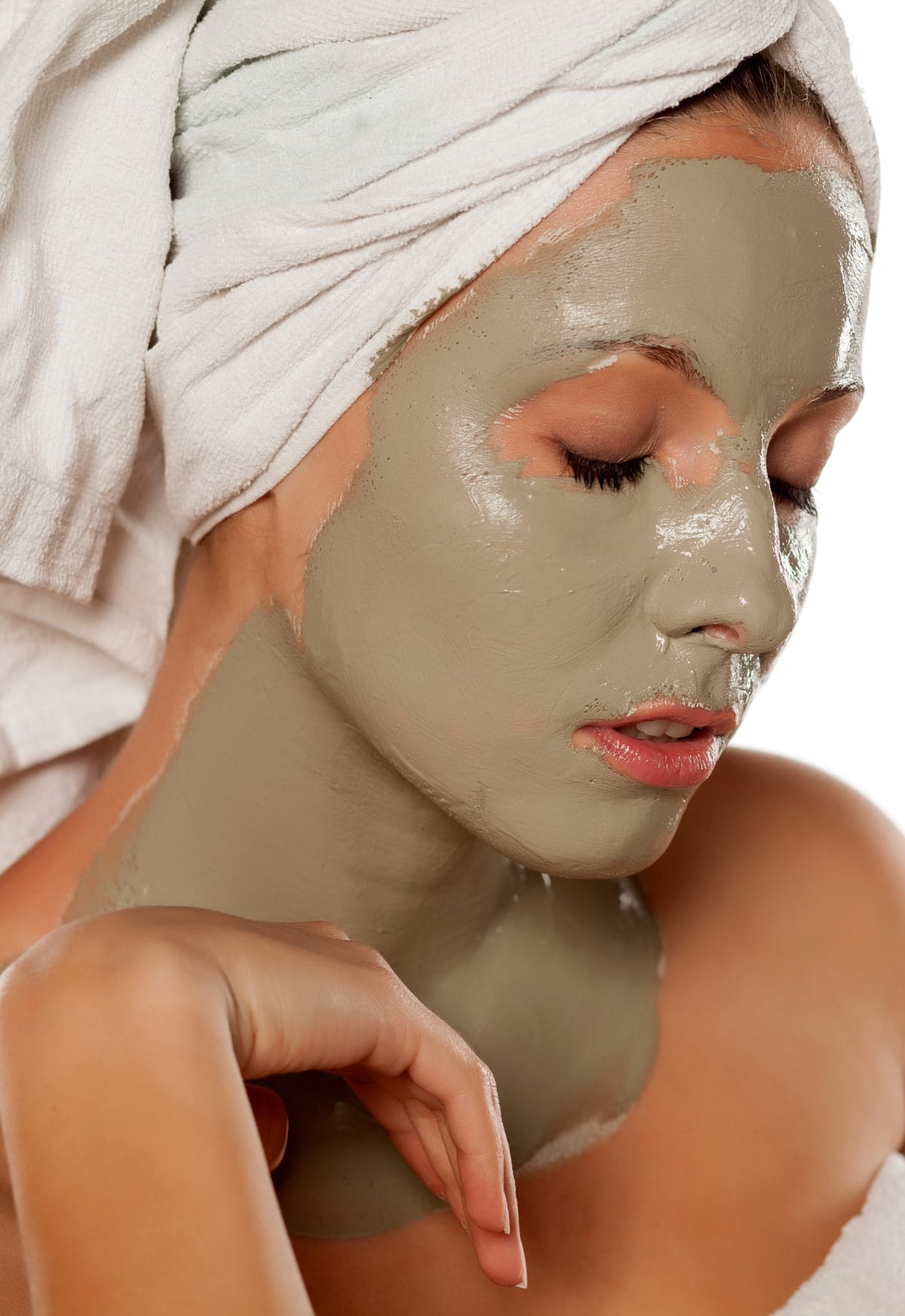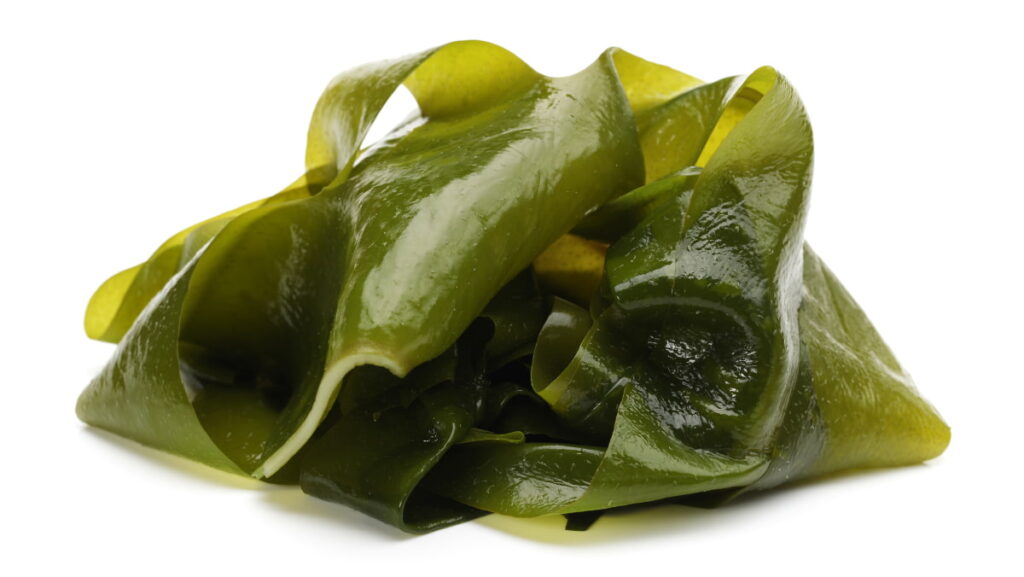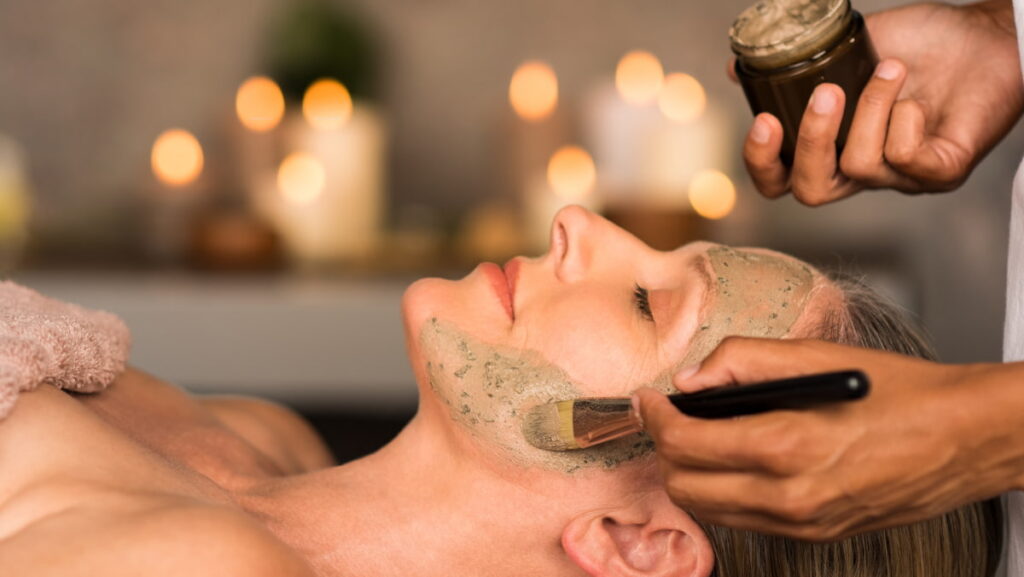
Looking for a natural solution to improve your skin’s health? Look no further: seaweed could answer all your skincare needs.
Despite its unassuming appearance, the benefits of seaweed for the skin go beyond imagination. This humble oceanic alga is a potent skin healer suitable for all skin types, and it’s worth considering adding it to your daily beauty routine.
How does seaweed rise to these expectations? Seaweed contains essential nutrients, antioxidants, and vitamins for maintaining healthy and radiant skin.
Thanks to its rich composition, it can help you combat common skin issues like acne, dryness, and premature aging – all while promoting a youthful and glowing complexion.
If you’re focused on boosting your skin’s appearance and overall health, seaweed is a worthy contender to become your new favorite natural ingredient. Read on to discover the benefits of seaweed for the skin in all its glory.
What Is Seaweed
Before diving right into the benefits of seaweed for the skin, let’s ensure we are all on the same page.
Seaweed, or macroalgae, are marine plants that grow in bodies of salt water. Impressively they are considered sea vegetables and have been used for centuries both for consumption and alternative medicine.
Seaweeds are divided into three categories based on their color, red, brown, and green algae. They all possess a wealth of nutrients for our bodies and our skin.
Even though you might not know them as seaweeds, there are some noteworthy types of seaweed used in skincare products:
- Spirulina: Rich in protein, amino acids, and antioxidants, this blue-green alga can improve skin texture, restore moisture, and fight free radicals.
- Kelp: High in iodine content, kelp can help regulate sebum production and prevent acne breakouts.
- Irish Moss: A red algae containing essential minerals like calcium and potassium helps to soothe irritation, soften the skin, and provide anti-aging benefits.

What Makes Seaweed So Great
To understand why seaweed boasts so many skin-loving benefits, we must explore its impressive composition and nutrient-rich content.
Seaweed is a treasure trove of vitamins and minerals that can benefit your skin. It’s packed with essential nutrients like vitamin A, vitamin C, and vitamin E that work together to nourish and protect your skin. Let’s take a closer look at what these vitamins can do for your skin:
- Vitamin A helps maintain skin elasticity, fights off free radicals, and stimulates cell regeneration. This means it can help reduce wrinkles and fine lines, giving your skin a more youthful appearance.
- Vitamin C is crucial for the production of collagen, which keeps your skin firm and smooth. It also has strong antioxidant properties, helping to protect your skin from damage caused by pollution, UV radiation, and other environmental stressors.
- Vitamin E is another powerful antioxidant that protects your skin from free radical damage, as well as repairing and nourishing the skin’s surface.
In addition to these vitamins, seaweed also contains a rich blend of minerals such as zinc, iodine, and selenium. These minerals provide a range of benefits for your skin:
| Mineral | Benefits for Skin |
| Zinc | Reduces inflammation, accelerates wound healing, and regulates sebum production |
| Iodine | Boosts skin’s natural defense mechanisms, promotes healing, and supports overall skin health |
| Selenium | Protects skin from oxidative stress and helps prevent signs of premature aging |
Seaweed is also a rich source of polysaccharides, which are often used in hair conditioners, moisturizers, wound-healing medicine, and precious amino acids. Let’s explore their impressive properties:
- Polysaccharides possess potent antioxidant, anticancer, antimicrobial, and anti-inflammatory properties, while
- Amino acids are natural moisturizing factors that prevent transepidermal water loss, keeping the skin plump.
To sum up, here is what seaweed has to offer to your skincare routine:
- Antioxidant
- Anti-inflammatory
- Antimicrobial
- Anti-allergic
- Sebum regulatory
With this impressive range of vitamins, minerals, and other nutrients, no one can doubt the benefits of seaweed for the skin. Let’s explore how seaweed can enhance your skincare routine and start reaping the rewards of this natural powerhouse ingredient.
Benefits Of Seaweed For The Skin
Whether you’re looking to hydrate, reduce inflammation or improve texture, seaweed can deliver a variety of advantages. Discover how adding seaweed to your routine can take your skincare game to the next level.
Here are the six impressive benefits of seaweed for the skin:
Seaweed Is A Potent Moisturizer
Seaweed contains natural hydrators like humectants and amino acids, which work together to lock in moisture and prevent water loss from your skin.
The polysaccharides found in seaweed act as a protective barrier, helping your skin to stay soft and supple even in dry conditions.
The moisture-retaining properties of seaweed make it an ideal ingredient for combatting dryness and maintaining optimal skin hydration.
Seaweed-infused products come in many forms, including masks, serums, and creams. Depending on your skin type, you’ll want to select the right product for the best results.
For those with drier skin types, seaweed masks, and creams are ideal. They’ll provide deep hydration and leave your skin feeling smooth and supple. On the other hand, serums work well for people with oily to normal skin since they offer light hydration without a greasy feel.
Here’s a quick reference table to help you choose seaweed-based products based on your skin type:
| Skin Type | Product |
| Dry | Mask/Cream |
| Normal | Serum |
| Oily | Serum |
Seaweed Improves Skin Tone And Hyperpigmentation
Compounds found in seaweed have demonstrated a remarkable capability to interfere with the melanin production process, addressing the root cause of hyperpigmentation.
By inhibiting the overproduction of melanin, these components play a pivotal role in brightening the skin’s complexion, working to erase dark spots and uneven skin tone.
Seaweed Reduces The Appearance Of Aging Skin
Free radicals cause skin aging by breaking down collagen and elastin that keep the skin looking youthful and plump. Seaweed’s abundant antioxidants, including vitamins A, C, and E, work collectively to combat free radicals that contribute to premature aging.
These antioxidants aid in protecting the skin’s collagen and elastin, maintaining its firmness and elasticity. With regular use, seaweed can aid in minimizing the appearance of fine lines and wrinkles, promoting a youthful complexion.
Seaweed Protects Against Photoaging
Exposure to ultraviolet (UV) radiation from the sun can lead to premature aging and damage, known as photoaging. Seaweed’s natural compounds protect against photoaging in two different ways.
Some seaweed components (antioxidants) scavenge damaging free radicals produced by UV exposure. Others have been shown to possess strong UV-absorbing properties and can help protect the skin against the harmful effects of sun exposure, reducing the risk of photoaging.
Seaweed Can Fight Against Acne
Seaweeds like kelp and spirulina contain compounds that possess anti-inflammatory and antimicrobial properties. These seaweeds have proven efficacy against acne-causing bacteria, making them especially beneficial for individuals with acne-prone skin.
Apart from seaweed’s ability to calm inflammation, it can also regulate sebum production, which can assist in preventing acne breakouts and promoting more transparent skin.
Seaweed Soothes Inflammation In Rosacea, Dermatitis And Others
For those dealing with skin conditions like rosacea and dermatitis, the anti-inflammatory properties of seaweed can offer relief. The soothing effects of seaweed extracts can help reduce redness, irritation, and itching associated with these conditions, providing a sense of comfort and improved skin health.
Bonus: Seaweed Promotes Hair Growth
Beyond its benefits for the skin, seaweed also plays a role in promoting healthy hair growth. Rich in vitamins, minerals, and amino acids, seaweed can nourish the scalp and hair follicles, potentially leading to thicker and stronger hair.
How To Use Seaweed On Your Skin
As I mentioned before, seaweed is rich in vitamins, minerals, and antioxidants that can be beneficial for your skin. Are you looking for a way to harness the fantastic benefits of seaweed for the skin? Here’s a comprehensive guide on how to use seaweed on your skin:
Mix Seaweed Into Your DIY Mask
You can create your nourishing masks by mixing powdered seaweed with water or other natural ingredients like yogurt or honey. Here is a step-by-step-guide:
1. Choose the suitable seaweed powder: There are various types of seaweed powders available, like kelp, nori, dulse, and spirulina. You can find these powders in health food stores, Asian markets, or online. Opt for organic options that are free from contaminants.
2. Prepare the seaweed mask: To create a mask with seaweed powder, you won’t need to rehydrate it. Mix the powder with water or other ingredients to make a paste. Follow the instructions on the packaging or consider a ratio of about 1 part powder to 2 parts liquid.
3. Customize your mask: Enhance the benefits of the seaweed mask by adding ingredients like honey, aloe vera gel, or essential oils. These additions can provide extra nourishment and address specific skin concerns.
4. Cleanse your face: Start with a clean canvas. Use a gentle cleanser suited for your skin type, and gently pat your face dry with a clean towel.
5. Apply the seaweed mask: Use clean hands or a brush to apply the seaweed mask evenly on your face, avoiding the delicate eye area. Gently massage the paste onto your skin using circular motions for complete coverage.
6. Relax and wait: Allow the mask to sit on your skin for approximately 10 to 15 minutes. During this time, the beneficial nutrients in the seaweed will work their magic.
7. Rinse off the mask: After the recommended time, rinse off the mask with lukewarm water. Ensure that all remnants of the mask are removed to prevent any dryness or irritation.
8. Moisturize: Once you’ve rinsed off the mask and gently patted your face dry, apply your regular moisturizer. This helps seal in moisture, leaving your skin feeling hydrated and refreshed.

Use Seaweed Infused Skincare Products
If you are not into mixing and concocting, there is a wide range of skincare products infused with seaweed to choose from:
- Cleansing: Start with a seaweed-based cleanser. Look for gentle cleansers that use seaweed extracts to cleanse your skin while providing essential nutrients.
- Exfoliation: Some exfoliating products contain finely ground seaweed particles. These can help remove dead skin cells and reveal a brighter complexion.
- Masks: Treat yourself to a seaweed face mask. These masks can hydrate, detoxify, and replenish your skin. They’re great for pampering sessions.
- Serums and Toners: Look for serums or toners that contain seaweed extracts. These can provide a concentrated dose of vitamins, minerals, and antioxidants.
- Moisturizers: Consider using a moisturizer infused with seaweed extracts. This can help lock in hydration and nourishment.
- Eye Creams: Seaweed-infused eye creams can help reduce puffiness and dark circles around the eyes.
- Sun Protection: Some seaweed compounds have natural sun-filtering properties. While they can’t replace sunscreen, they can provide an extra layer of protection.
- Spot Treatments: Seaweed-based spot treatments can help calm inflammation and target specific skin concerns.
- Body Care: Don’t limit seaweed to your face. Look for body washes, lotions, and even bath products that contain seaweed extracts.
Pro tip: When considering incorporating seaweed into your skincare routine, keep in mind that quality matters. Look for products that are made with sustainably sourced seaweed, free of harmful chemicals, and produced by reputable skincare brands.
Moreover, titrate seaweed skincare products into your routine. Start by incorporating them once or twice a week, and closely monitor your skin’s reaction.
If you notice improvements in hydration and overall skin health, consider using these products more frequently. However, discontinue use or turn to a milder product if your skin becomes irritated.
The Best Skincare Products With Seaweed
- Mario Badescu Seaweed Night Cream: A nourishing and hydrating night cream that helps to improve skin texture and reduce the appearance of fine lines and wrinkles.
- OSEA Ocean Cleanser: A gentle, non-drying cleanser that effectively removes impurities and makeup, leaving skin feeling refreshed and hydrated.
- True Botanicals Calm Nutrient Mist: A soothing and hydrating mist that helps to calm and reduce redness in sensitive or irritated skin.
- Mario Badescu Seaweed Cleansing Soap: A creamy and refreshing face wash that combines gentle exfoliation with daily cleansing to leave skin feeling soft, smooth, and nourished.
- ELEMIS Pro-Collagen Marine Cream: A luxurious and lightweight cream that helps to hydrate and firm skin, reducing the appearance of fine lines and wrinkles for a more youthful-looking complexion.
- Mario Badescu Seaweed Cleansing Lotion: A gentle and oil-free toner that helps to remove impurities and balance skin’s pH, leaving skin feeling refreshed and revitalized.
Potential Side Effects Of Seaweed
While seaweed is generally safe to use on the skin, there are a few potential side effects that you should be aware of:
- Allergic reactions: Some individuals may have allergies or sensitivities to seaweed or specific types of seaweed. If you have a known allergy to seafood or iodine, you may be more prone to allergic reactions when using seaweed topically. Symptoms of an allergic reaction can include redness, itching, swelling, rash, or hives. If you experience any of these symptoms, discontinue use and seek medical attention.
- Skin irritation: Seaweed, especially when used in its raw form, can have a rough or abrasive texture that may cause mild irritation or redness in sensitive individuals. If you have sensitive skin, it’s recommended to perform a patch test before applying seaweed to your entire face to check for any adverse reactions.
- Contaminants: Seaweed can absorb minerals and heavy metals from the water in which it grows. If the seaweed is harvested from polluted or contaminated areas, it may contain impurities that can potentially irritate the skin or cause other adverse effects. It’s important to source high-quality, organic seaweed from reputable suppliers to minimize the risk of contamination.
Pro tip: It’s essential to patch-test any new product you’re considering to ensure your skin has no adverse reaction.
Alternatives To Using Seaweed On The Skin
If you’re looking for alternatives to using seaweed on the skin, there are several other natural ingredients and skincare products you can consider. Here are a few options:
- Aloe Vera: Aloe vera gel is known for its soothing and hydrating properties. It can help calm irritated skin, reduce redness, and provide moisture.
- Green Tea: Green tea is rich in antioxidants and has anti-inflammatory properties. It can help reduce skin redness and irritation while providing a boost of antioxidants to protect against free radicals.
- Cucumber: Cucumber has a cooling and hydrating effect on the skin. It can help soothe inflammation, reduce puffiness, and provide a refreshing sensation.
- Honey: Honey is a natural humectant that can help retain moisture in the skin. It has antibacterial properties and can help soothe and nourish the skin.
- Oatmeal: Oatmeal has soothing and anti-inflammatory properties, making it suitable for sensitive or irritated skin. It can help calm itchiness and redness and provide gentle exfoliation.
- Hyaluronic Acid: Hyaluronic acid is a hydrating ingredient that can hold a significant amount of water, helping to plump and moisturize the skin. It can improve skin elasticity and reduce the appearance of fine lines and wrinkles.
- Chamomile: Chamomile has calming and anti-inflammatory properties, making it beneficial for sensitive or irritated skin. It can help soothe redness, inflammation, and skin conditions like eczema or rosacea.
Conclusion On Benefits Of Seaweed For The Skin
By now, you’ve undoubtedly seen the immense benefits of seaweed for the skin. It gives nothing less than a full range of advantages for dehydrated, aging, hyperpigmented, and acne-prone skin.
Incorporating seaweed into your skincare regimen could be as simple as using a cleanser, mask, or serum containing seaweed extracts.
Once you find the right seaweed-infused products for your unique skin needs, you’ll be one step closer to achieving that flawless glow.
So go ahead, dive into the world of seaweed skincare, and revel in the transformative effects it can have on your skin.
Related Posts
How we reviewed this article
- Process
